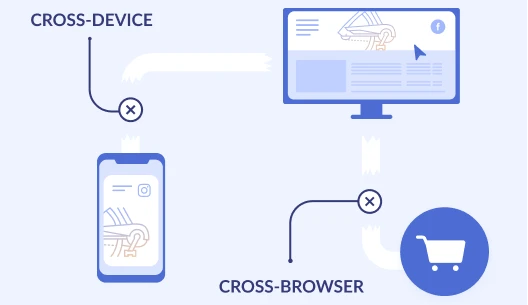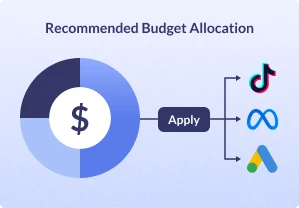Boost your advertising performance with Predictive Lead Scoring
Leverage Oxio One Al to identify which leads are most likely to convert based on your own historical data.
With accurate, real-time Predictive Lead Value insights you can boost ad performance, enhance marketing ROAS reporting, and increase your sales conversion rates.
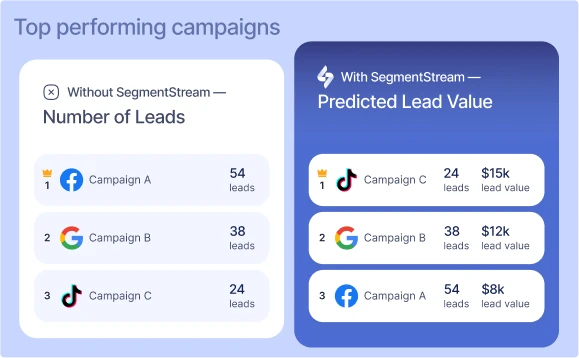
We all know that no two leads are the same. Yet...
Your ad platforms are focused on driving quantity, not quality
A long sale cycle prevents you from optimizing your Google and Facebook Ads campaigns towards final revenue, leaving you with a high amount of low-quality leads that don't convert.
Long sales cycles break smart bidding algorithms of Google and Facebook Ads
Ad platforms struggle to optimize for revenue due to a long delay between an ad click and a sale. An immediate feedback loop is essential for effective smart bidding optimization.
Your marketing reports are based on leads CPA, not sales ROAS
Due to a disconnect between lead and revenue, you feel like you don't have any better option than making your budget allocation decisions solely on the number of leads.
With Oxio One AI you can finally switch from quantity to quality
Invest in campaigns that drive revenue, not just leads
With Predictive Lead Scoring, there is no need to wait 3-6 months for leads to convert in order to assess the ROAS of your marketing campaigns.
Oxio One will quickly help uncover which traffic sources drive the most value for your business, not just the quantity of leads.


Unlock Value-Based Bidding to double ROAS
With Predictive Lead Scoring, you can provide ad platforms' algorithms with accurate, real-time insights into the monetary value of each new lead.
This helps Google and Facebook Ads bid higher for potentially high-value customers and avoid spending money on people who are less likely to convert.
It’s easy to get started
Step 1: Choosing the right markets for an accurate incrementality test
Using a sophisticated engine, Oxio One pinpoints control and test geo-regions that have similarities in revenue patterns and seasonality.


Step 1
Seamlessly connect your CRM or Data Warehouse with your historical leads and sales data.
Step 2
Oxio One will train and validate your custom Al model in a matter of 1-2 weeks.
Step 3
Sync Predictive Lead Values with your ad platforms or marketing reports in Oxio One.
Why Predictive Lead Scoring by Oxio One?
Go beyond unreliable, manual rule-based scoring tools
Leverage the power of Al that analyzes a combination and sequence of hundreds of data points, providing you with accurate, data-driven insights you can trust.
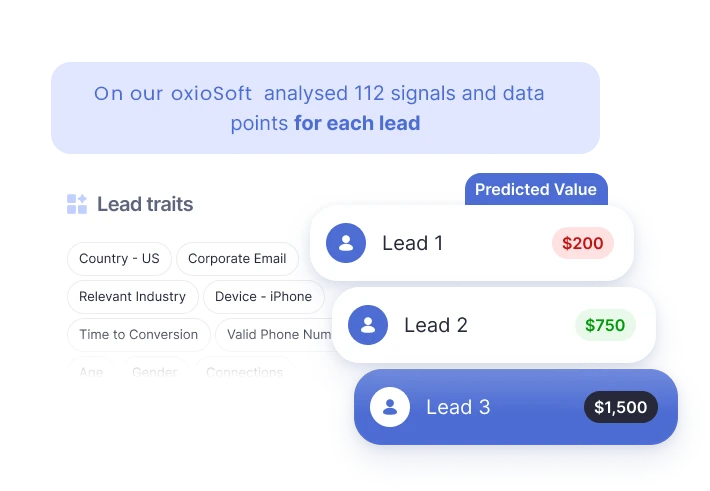
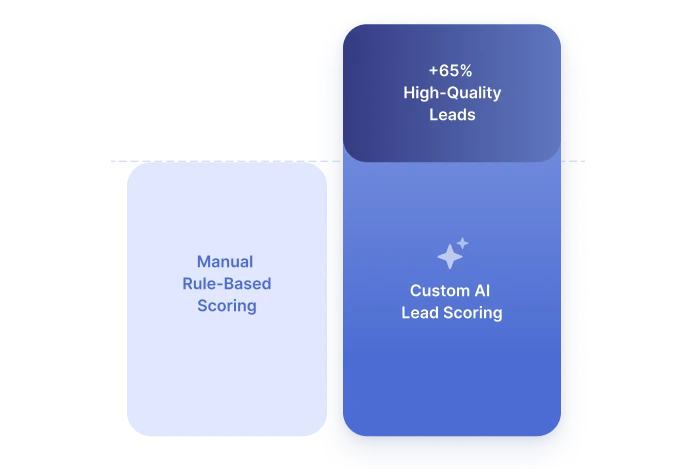
Achieve unparalleled accuracy with custom AI
Unlike other scoring tools, Oxio One builds a custom machine learning model for each client based on their unique historical 1st party data.
Get even more accurate results with Reinforced Learning
The more you use Oxio One, the higher the accuracy of the scoring model will be, as it self-retrains based on fresh data on a daily basis.
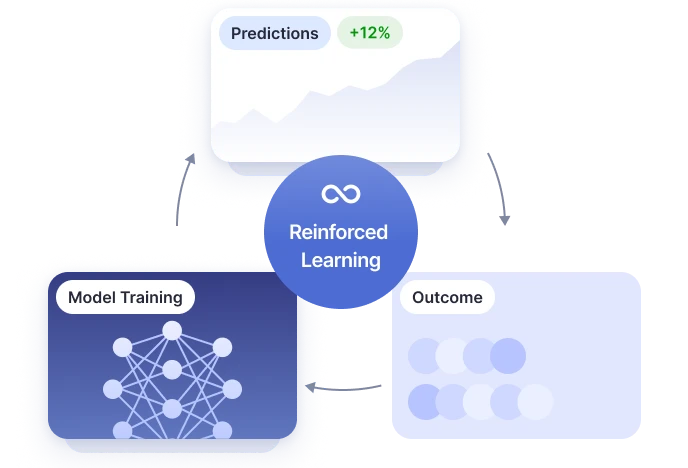
Unlock the full potential of your digital advertising budget
AI-driven attribution to measure the real, incremental ROAS
Oxio One is a cookieless analytics solution that measures the actual contribution of your ad activities in total revenue, rather than a single conversion that may not be tracked when relying on cookies.
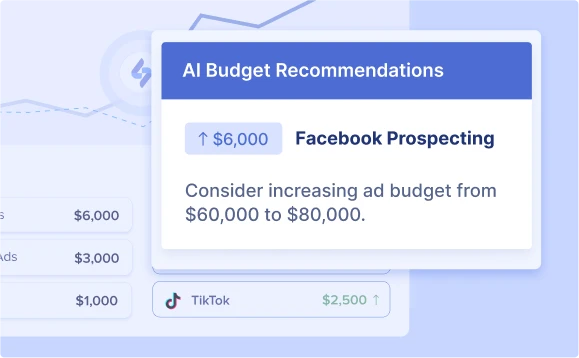
Actionable, AI-powered budget reallocation recommendations
Oxio One's AI engine continuously analyzes your marketing mix, pinpointing opportunities for revenue growth by optimizing budget allocation.
Geo Holdout Tests to measure the incremental lift of paid media
Precisely measure the true sales impact of your paid media investments with expert-level incrementality tests.
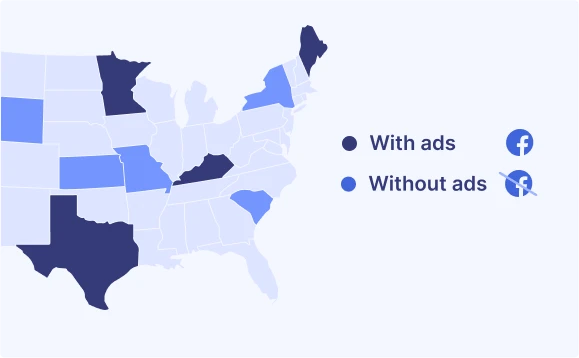
Explore our Resources
